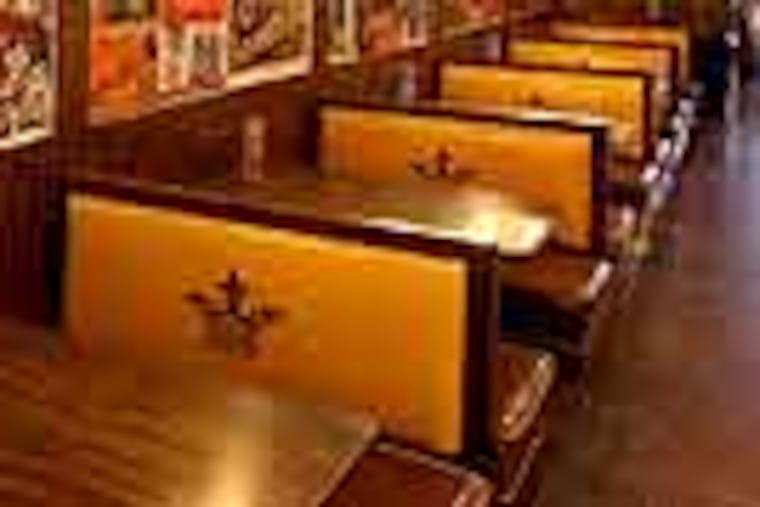Bill would keep credit-card fees from cutting tips
Sometimes Dave and Connie Kalkstein eat at the Oak Lane Diner; other times they go upscale to the Mission Grill in Center City.

Sometimes Dave and Connie Kalkstein eat at the Oak Lane Diner; other times they go upscale to the Mission Grill in Center City.
But when they pull out a credit card to pay, Dave Kalkstein, a retired sales executive from Germantown, asks the server about the restaurant's gratuity policy before he adds the tip to the bill.
"If the waiter gets paid in cash that night, I'll put it on the credit card," he said. "But if I hear there's a problem, I'll pay the tip in cash."
Kalkstein may be unusual in his regard for the waitstaff, but a bill up for a vote in Philadelphia City Council on Thursday addresses another issue involving tips and credit cards - one that had never occurred to Kalkstein.
The bill, introduced by Councilman James Kenney, would prohibit restaurants from deducting credit-card transaction fees from any tip included on the bill.
Here's the math: Suppose Kalkstein spends $100 and tips 20 percent, or $20.
When Kalkstein puts the entire $120 on his credit card, the credit-card company will charge the restaurant an average fee of 2 percent, or $2.40, to process that transaction. Of the $2.40, $2 is attributable to the food-and-drink part of the bill and 40 cents is attributable to the $20 tip.
Some restaurants, Kenney said, will deduct the 40-cent fee from the server's tips.
"I never thought of that," Kalkstein said. When he tips $20, he said, "I expect the waiter to get the 20 bucks."
Servers, paid a minimum wage of $2.83, rely on tips for the bulk of their wages.
"You can't justify paying someone $2.83 an hour and then dip into their tips to defray your costs of doing business," said Kenney, a former bartender. "It's like taking money out of their paychecks to pay for air-conditioning."
The Pennsylvania Restaurant Association opposes Kenney's proposed bill.
"We've always objected to the [bank] fees," said Patrick Conway, chief executive. But, he said, it's not unreasonable for restaurateurs to pass part of those fees on to servers.
"They are only passing on a tiny fee mandated by the banks," he said - 40 cents on $20, using Kalkstein's meal as an example.
But, when that fee is multiplied by many servers and many meals, the expense could put a restaurant out of business, costing jobs.
"The bill is well-intentioned," Conway said, "but it could have unintended consequences.
"Profits are already low, 3 percent," he said.
Conway said he did not know how many restaurants deduct fees from tips. It's not an uncommon practice.
Diners like the convenience (and the airline points) of paying with plastic, he said, adding that 90 percent pull out a card to pay the tab. Some use credit cards; others debit their accounts. Bank fees on debit transactions are lower.
A new federal law that went into effect Oct. 1 may reduce costs.
Under the law, the maximum fee on a debit transaction - whether done with a pin pad or by signing the debit slip - would be no more than 27 cents, significantly lower than earlier rates, said Rachel Wolf, spokeswoman for the Merchants Payments Coalition, a trade group.
Meanwhile, members of the Restaurant Opportunities Center of Philadelphia, an advocacy group for restaurant workers, want the bill to pass.
Among them is a server with 20 years' experience in the restaurant industry. She now works for an upscale Stephen Starr eatery in Philadelphia, where pro-rated credit-card fees are routinely deducted from her tips.
"I don't think guests are aware of it," she said, requesting anonymity because she fears losing her job.
"We're treated as if we're independent contractors, but we're not. It's not up to me to [decide whether to] take credit or cash. It's the restaurant that has the policy, so they should shoulder the cost of that business decision."
Calls to the Starr organization and its lawyer, Ronald Patterson, were not returned.